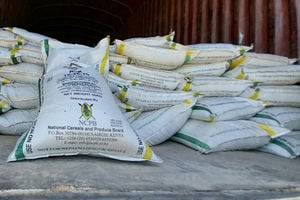Kenya’s letter to ICC President
H.E. Mr Christian Wenaweser
President of the Assembly of State Parties to the Rome Statute
New York, Feb 28, 2011
Ref: Support for Kenya’s reform movement
The pursuit of the International Criminal Court (ICC) cases in Kenya has set a new international milestone that will make an example of Kenya for all nations and people of the world, particularly active politicians and senior civil servants.
Nonetheless, the individuals sensationally mentioned in the ICC cases in Kenya are presumed innocent until proven guilty. Most unfortunately, the pre-trial chamber will conduct its business in the context of presidential campaigns in 2011 and elections in 2012.
The actual trial will not commence until long after the elections slated for August 2012. Some of the individuals mentioned by the ICC prosecutor are among the front runner presidential candidates and the civil servants mentioned are in office and charged with responsibilities for peace and security.
Needless to say, therefore, the pending ICC indictments pose a real and present danger to the exercise of government and the management of peace and security in the country.
The President of Kenya is not seeking-re-election in 2012. He believes, however, that the ICC process in Kenya is being used by parties, both internal and external, to whip up emotions in ways in which the Rome Statute was never meant to be used.
Is a rush to undertake the pre-trial process in the political climate of a presidential campaign worth the risk of destabilising the country and a return to violence and loss of life in Kenya?
Furthermore, the impressive constitutional and legislative reforms underway in Kenya hailed as “a significant step forward for Kenya’s democracy” by President Obama, must not be subverted by ICC action right now.
The ICC should not become part of a political calculus, as in Kenya, where the real danger of “undermining accountability and countenancing impunity” on the one hand and “orchestrating the evisceration of political opponents and thus facilitating a perceived grab for power” accusations on the other, have become the flash points of a presidential election campaign unfolding in the shadow of the ICC pre-trial chamber context.
In the wake of the 2008 post-election crisis that claimed over 1,400 lives and displaced 600,000 people, Kenya begun to effect impressive and comprehensive political and legislative reforms (see attached list of achievements) culminating in a national referendum and the promulgation of a new Constitution in August 2010.
Since the announcement of the names of the “Ocampo Six” suspects, the pace of reforms has ground to a crawl. Moreover, as demonstrated in 2008 Kenya’s own peace and security is inextricably linked to that of the larger east African region.
The political climate in Kenya in the build up to the presidential elections of 2012 could very well threaten the implementation of the new Constitution as well as trigger violence and conflict that would have costly region wide ramifications.
It should not be forgotten that President Kibaki’s initial intention was for Kenya to pursue an admissibility challenge under Article 19 of the Rome Statute in light of Kenya’s success at implementing reforms. Unfortunately the Attorney General demurred and the lack of coalition consensus made it well-nigh impossible to take up this option.
The President is of the view therefore, that Kenya should seek a 12 month reprieve from the UN Security Council, in accordance with Article 16 of the Rome Statute, to help facilitate the implementation of the new Constitution, the transformation of governance structures as well as the judicial and police systems, while helping avert potential violence and chaos in Kenya and the East African region at large.
The African Union has endorsed Kenya’s request for deferral.
Those guilty of post-election violence will be pursued, of this there is no doubt; the question is whether this should happen in the midst of an emotive presidential campaign? This is a political problem that requires a political solution that only the UN Security Council can effect.
Attached please find an Aide Memoire from the Ministry of Foreign Affairs for your further reference.
Macharia Kamau
Ambassador/Permanent Representative to the United Nations




